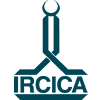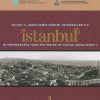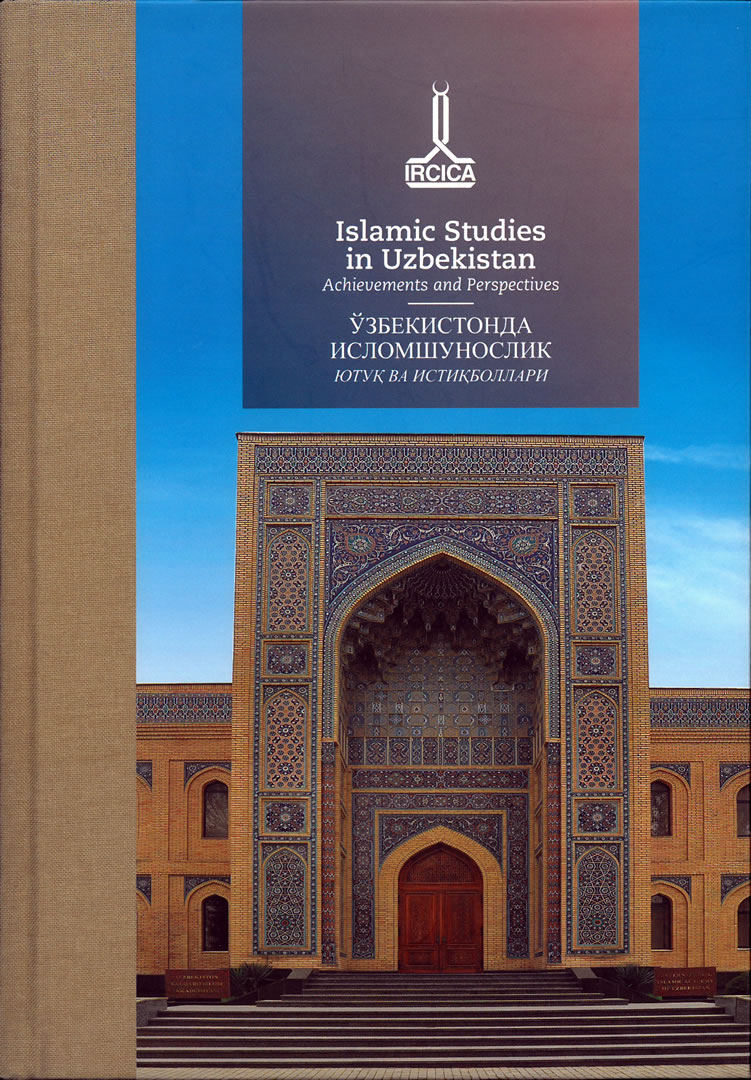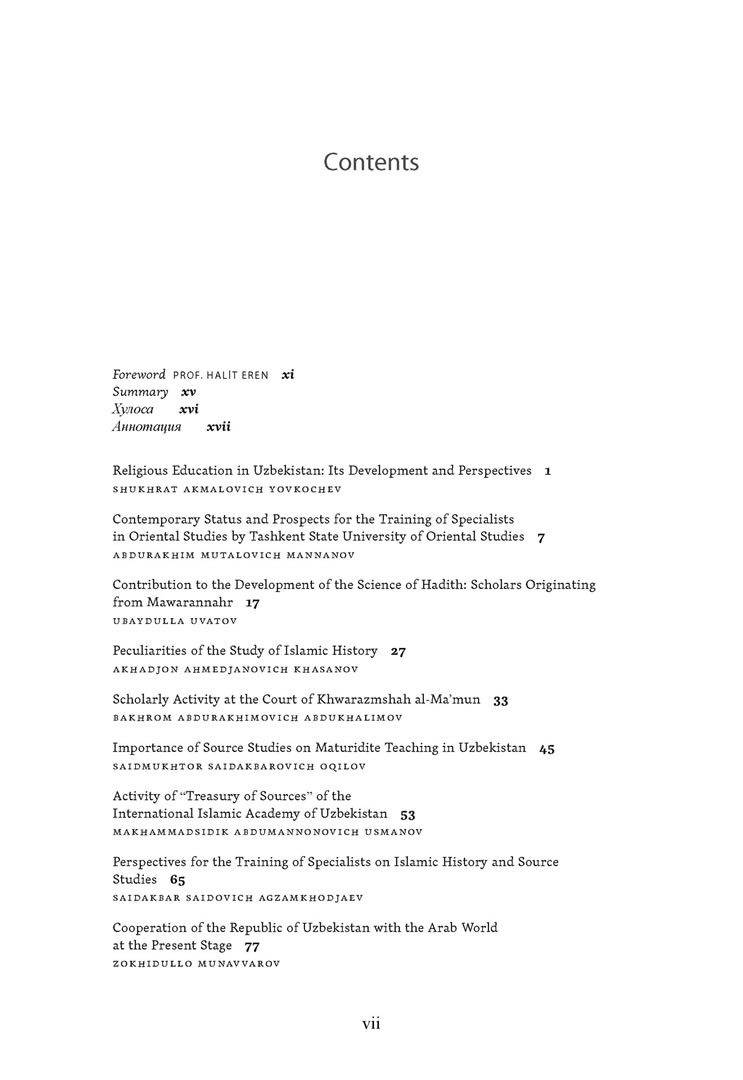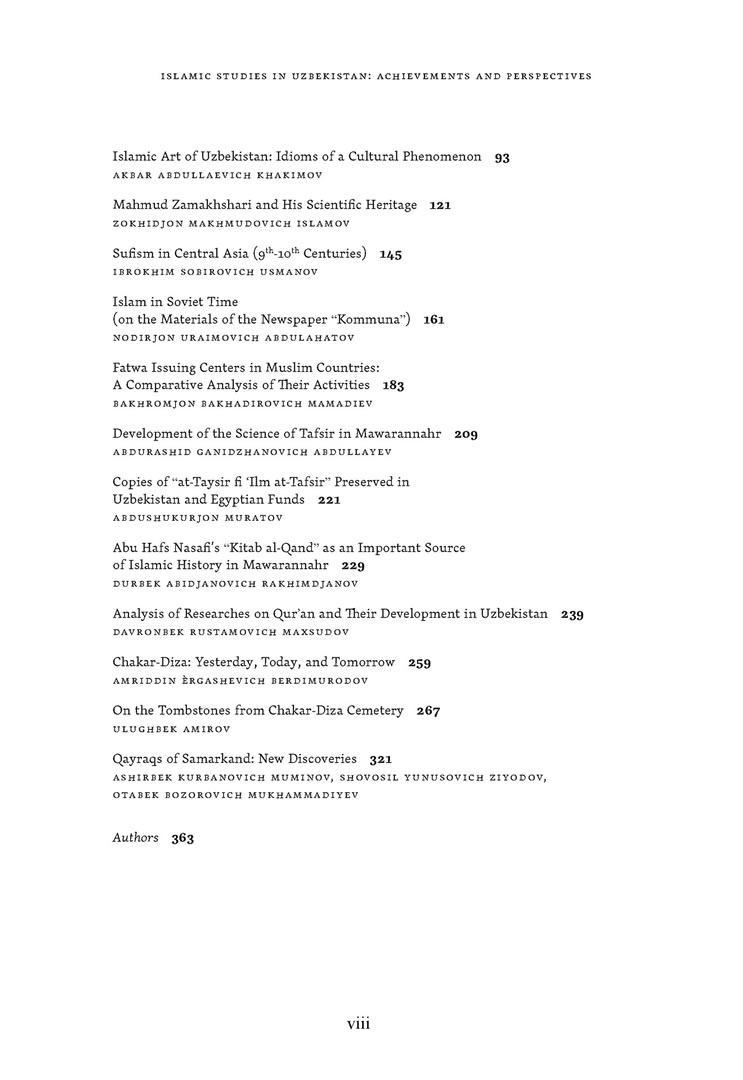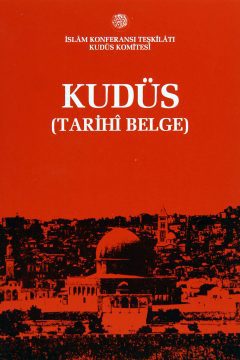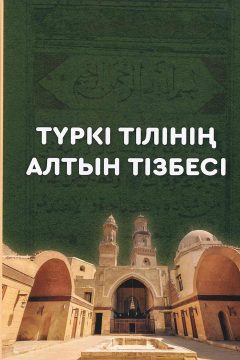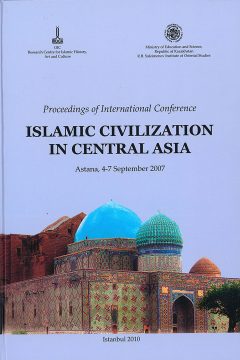The International Workshop on “Islamic Studies in Uzbekistan: Achievements and Perspectives” was conducted jointly by IRCICA and the International Islamic Academy of Uzbekistan, in Tashkent, on 24 June 2019. It was opened by Prof. Dr. Halit Eren, Director General of IRCICA, and Prof. Dr. Shuhrat A. Yovqochev, Rector of the International Islamic Academy of Uzbekistan. Specialized papers were presented to the workshop by scholars and experts from Uzbekistan. This book is a collection of 21 articles based on the workshop.
The articles deal with the state and prospects of Islamic studies in Uzbekistan with regard to a wide range of aspects and issues involved in the conduct of Islamic studies. From the perspectives of the different disciplines and subject areas these studies comprise, they record experiences, assess needs and estimate future prospects with regard to the various theoretical, technical and operational aspects of the field, thus focusing on research, teaching, training, source studies, academic exchanges and international cooperation, among others. Thanks to the diversity of the authors’ specializations, a multi-disciplinary range of subject areas in Islamic studies come into focus such as: religious sciences, including Quranic education, the sciences of Hadith, exegesis, and jurisprudence, Sufism and schools of theology; history; art; archeology; architecture; source studies; methodological issues, and training of educators and researchers. It is noteworthy that the research and educational environment of Islamic studies in Uzbekistan benefits from the richness and diversity of the topics, materials and sources that the history and scholarly heritage of Uzbekistan offer for study.
In the context of its research and conference programs on the history and heritage of Islamic civilization in the different regions of the OIC-IRCICA membership, IRCICA gives importance to highlighting the contributions that came from the different cultural and linguistic regions of this membership geography to Islamic civilization. Thus IRCICA gives importance to highlighting the scientific and intellectual inputs from Uzbekistan and other countries of Central Asia to this civilization. To this aim various projects were conducted by IRCICA over the past years and series of international workshops were organized in the last couple of years in countries of Central Asia in cooperation with their governments, academic and cultural institutions. The workshop which occasioned the present publication was organized in the same vein. From the viewpoint of IRCICA, the book is a valuable addition to its series of studies on the history of Islamic civilization in Central Asia. It represents an accurate realization of the objectives sought by the organizers in planning the workshop. IRCICA believes that the book will be an important input to the academic literature relating to Islamic studies and will draw the attention of scholars and researchers world-wide.
